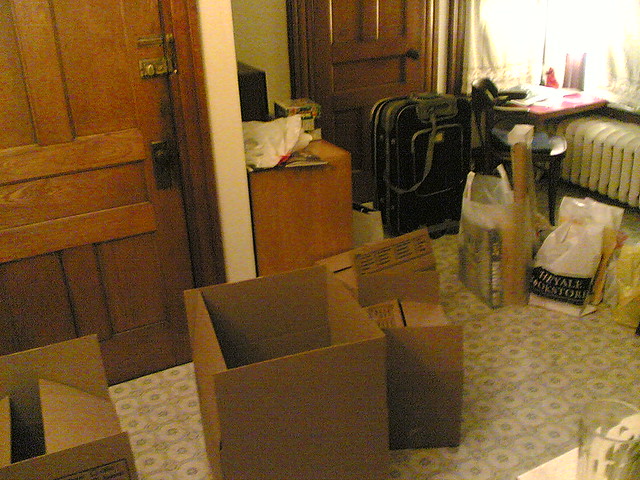Unless you’re an experienced renter, moving can actually get you in a spot of bother unless you follow the correct protocol. A wrong move can result in unexpected fees, fines and even a driving penalty. Here’s our checklist to help you avoid the worst when moving out of a rental flat.

Photo source: https://bit.ly/2IGxL8P
Inform the right people
There is a long list of institutions to tell that you’re moving, including your employer, your bank, your credit card providers, utility providers and the council.
And then there’s the DVLA, which can often be the forgetful one. Whilst you’re not changing cars, you are changing address, so if you get an unfortunate driving offence, the DVLA will write to your old address and if they don’t get receive a timely response, it can get bad quickly.
Change your postal address
It may be worth investing in the mail redirection service from Royal Mail – charges begin from £33.99 for three months and it takes just 5 days to organise. You can apply online or at your local post office from 3 months before to 6 months after you move.
Don’t forget to clean
According to the Deposit Protection Scheme (DPS), poor cleaning makes up over half the deductions from tenants’ deposits.
The best way to avoid this from happening is to pay for a good end-of-tenancy clean. This may even be a requirement in your contract so be sure to double check.
And when they’ve finished, take plenty of clear photos of their work so if issues do arise, it’ll be easier to dispute it with the cleaning company instead of letting it affect your deposit. If you can, send the same photos to your landlord. Remember that your aim is to return the flat how you found it.
Worried about being charged for pre-existing issues? Resend your check-in photos to your landlord to remind them of the properties condition when you first moved in.
Know about wear and tear
Landlords aren’t allowed to subtract money for ‘reasonable wear and tear’. Examples include worn carpeting, loose wallpaper and faded curtains or drapes.
Also, if you’ve lived in a property for several years, the landlord should expect the property to be more worn than one that’s been occupied for a short period of time (six months and under).


 Brilliant – you have found a property to rent! Whether you’re renting for the first time, or already an experienced tenant, you need to ensure you understand your responsibilities. Being aware from the outset of what is expected of you can prevent confusion and issues further down the line. So, what exactly are your responsibilities?
Brilliant – you have found a property to rent! Whether you’re renting for the first time, or already an experienced tenant, you need to ensure you understand your responsibilities. Being aware from the outset of what is expected of you can prevent confusion and issues further down the line. So, what exactly are your responsibilities?